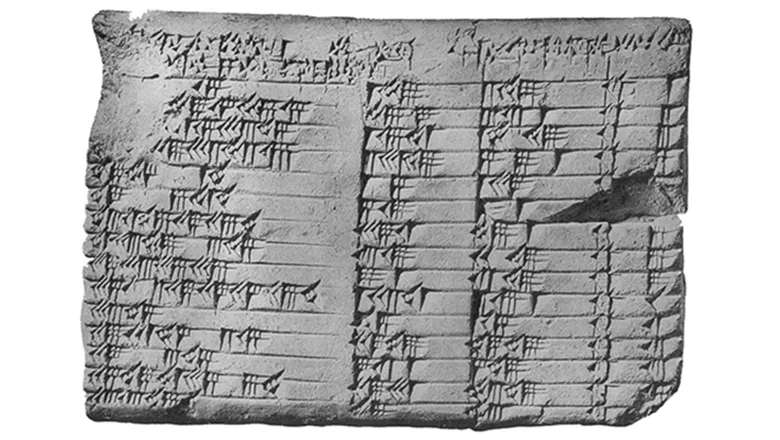One amazing thing about Diophantine equations is how early the evidence of their study is – we have ancient Babylonian tablets around 4,000 years old listing solutions to some of these equations."
Dr Rachel Newton
16 May 2025
Future Leaders Fellowship extended for King's Mathematician to explore ancient equations
Dr Rachel Newton’s UKRI fellowship on Diophantine equations has been extended for another three years

A UKRI Future Leaders Fellowship has been extended for King’s mathematician Dr Rachel Newton, supporting her project aimed at investigating solutions to Diophantine equations for another three years.
Named after ancient Greek mathematician Diophantus, Diophantine equations have been studied for thousands of years – since even before the time of the Ancient Greeks, for example in Babylonia. Despite this, there are many aspects of these equations that remain mysterious to mathematicians.
Dr Rachel Newton, Reader in Number Theory, said, “One amazing thing about Diophantine equations is how early the evidence of their study is – we have ancient Babylonian tablets around 4,000 years old listing solutions to some of these equations.
“Quadratic equations in the whole numbers are examples of Diophantine equations, including the one we all know as Pythagoras’ equation. Diophantine equations are very simple in that they are polynomial equations meaning that they don’t use fancy formulas; they use powers, multiplication and addition.
Yet there is still a lot that we don’t know about solutions to Diophantine equations, hence the need for further research.
Rachel said, “For some equations, it’s easy to find solutions. But for other equations, you could search for a long time and find nothing. But how can you be sure whether or not solutions exist? This problem is not something that can be solved by just using a more powerful computer because there are infinitely many whole numbers and we can’t check all of them.”
With the potential rise of quantum computing comes a need for new cryptographic schemes which are quantum resistant. It is good to invest in number theory, you never know what it might be useful for.”
Dr Rachel Newton
Rachel aims to generate general techniques to deepen our understanding of Diophantine equations, for example methods of proof so that mathematicians can be sure that no solutions exist for some equations.
She said, “Some we know we can understand, some are on the edge of current knowledge. There are many approaches we can take to develop general techniques and push the boundaries of research.
“This includes drawing on tools from algebra, geometry and sometimes even taking a statistical approach, investigating whole families of infinitely many equations.”
Projects such as Rachel’s FLF represent long-term investment in blue-sky research which could feed into future technological development, including new cryptographic schemes for online security.
Rachel said, “Polynomial equations are used in cryptography, and with the potential rise of quantum computing comes a need for new cryptographic schemes which are quantum resistant. It is good to invest in number theory, you never know what it might be useful for.”

